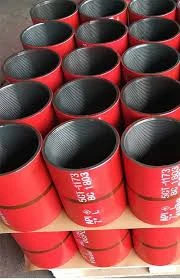- Afrikaans
- Albanian
- Amharic
- Arabic
- Armenian
- Azerbaijani
- Basque
- Belarusian
- Bengali
- Bosnian
- Bulgarian
- Catalan
- Cebuano
- Corsican
- Croatian
- Czech
- Danish
- Dutch
- English
- Esperanto
- Estonian
- Finnish
- French
- Frisian
- Galician
- Georgian
- German
- Greek
- Gujarati
- Haitian Creole
- hausa
- hawaiian
- Hebrew
- Hindi
- Miao
- Hungarian
- Icelandic
- igbo
- Indonesian
- irish
- Italian
- Japanese
- Javanese
- Kannada
- kazakh
- Khmer
- Rwandese
- Korean
- Kurdish
- Kyrgyz
- Lao
- Latin
- Latvian
- Lithuanian
- Luxembourgish
- Macedonian
- Malgashi
- Malay
- Malayalam
- Maltese
- Maori
- Marathi
- Mongolian
- Myanmar
- Nepali
- Norwegian
- Norwegian
- Occitan
- Pashto
- Persian
- Polish
- Portuguese
- Punjabi
- Romanian
- Russian
- Samoan
- Scottish Gaelic
- Serbian
- Sesotho
- Shona
- Sindhi
- Sinhala
- Slovak
- Slovenian
- Somali
- Spanish
- Sundanese
- Swahili
- Swedish
- Tagalog
- Tajik
- Tamil
- Tatar
- Telugu
- Thai
- Turkish
- Turkmen
- Ukrainian
- Urdu
- Uighur
- Uzbek
- Vietnamese
- Welsh
- Bantu
- Yiddish
- Yoruba
- Zulu
Galvanized Steel Pipe Connectors for Durable Plumbing and Structural Applications
Understanding Galvanized Steel Pipe Couplings
Galvanized steel pipe couplings are essential components in plumbing and construction that play a significant role in connecting lengths of galvanized steel pipes. These couplings, which are coated in a layer of zinc to prevent rust and corrosion, offer durability and reliability in various applications—from residential piping systems to industrial manufacturing processes.
What is Galvanized Steel?
Galvanized steel is produced through the process of galvanization, which involves coating steel with a thin layer of zinc to prevent rusting. This zinc coating acts as a sacrificial layer, ensuring that even if the surface is scratched, the underlying steel remains protected from the elements, particularly moisture. As a result, galvanized steel is often favored in environments where pipes may be exposed to water or humidity.
The Function of Pipe Couplings
Pipe couplings serve multiple purposes in plumbing and construction. They allow for the extension of pipe runs, enabling the seamless connection of additional pipe sections. This is particularly useful in large installations where precise lengths are required. Couplings also facilitate the repair of damaged pipes by allowing segments to be disconnected and replaced without requiring a complete overhaul of the piping system.
Types of Couplings
There are several types of pipe couplings available, each suited to different applications
1. Threaded Couplings These are designed for pipes that have male and female threads. Threaded couplings are easy to install, requiring only a wrench for assembly. They are often used in applications where disassembly may be necessary.
2. Slip Couplings This type does not have threads; instead, they slide over the ends of two pipes to connect them. Slip couplings are commonly used in situations where pipes need to be joined without the need for threading, such as in underground installations.
galvanized steel pipe coupling

3. Socket Weld Couplings These are used in high-pressure applications. The pipes are inserted into the coupling and then welded together, providing a very strong seal.
4. Compression Couplings These couplings are used to connect pipes by compressing a gasket against the pipe ends. This type is particularly useful for quick repairs and maintenance.
Advantages of Galvanized Steel Pipe Couplings
Galvanized steel pipe couplings offer several advantages
- Corrosion Resistance The zinc coating provides an added layer of protection against rust and ensures longevity, making them ideal for outdoor and wet applications.
- Strength and Durability Galvanized steel is known for its strength, making it suitable for various structural applications. These couplings are resistant to bending and cracking, providing robust connections.
- Cost-effective While they may have a higher upfront cost compared to plastic or other materials, galvanized steel couplings often outlast their counterparts, leading to lower maintenance and replacement costs over time.
- Versatility Galvanized steel pipe couplings are suitable for both residential and industrial applications, providing a reliable connection for various types of fluid transport systems.
Conclusion
In conclusion, galvanized steel pipe couplings are vital components that enhance the integrity and longevity of plumbing and piping systems. By choosing the right coupling type for a specific application, contractors and maintenance professionals can ensure efficient assembly and reliable operation. With their excellent corrosion resistance and strength, galvanized steel pipe couplings are a wise choice for anyone looking to invest in durable piping solutions. Whether for new construction or repairs, these couplings stand as a testament to effective engineering and a practical choice for fluid management.
-
Tubing Pup Joints: Essential Components for Oil and Gas OperationsNewsJul.10,2025
-
Pup Joints: Essential Components for Reliable Drilling OperationsNewsJul.10,2025
-
Pipe Couplings: Connecting Your World EfficientlyNewsJul.10,2025
-
Mastering Oilfield Operations with Quality Tubing and CasingNewsJul.10,2025
-
High-Quality Casing Couplings for Every NeedNewsJul.10,2025
-
Boost Your Drilling Efficiency with Premium Crossover Tools & Seating NipplesNewsJul.10,2025







